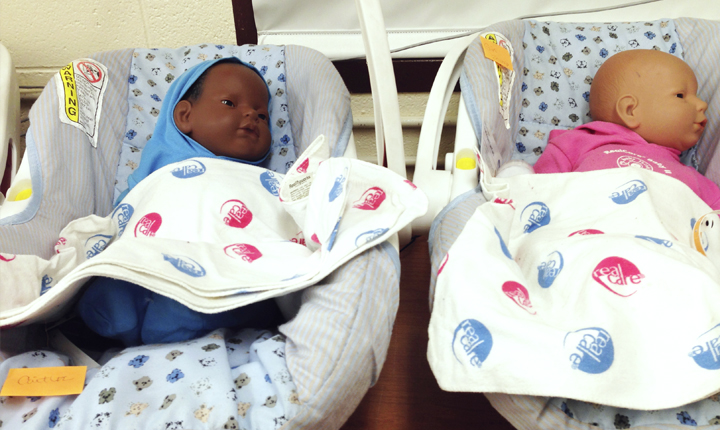A new study has found that teenagers who are given electronic or robot babies as part of a school program to prevent teen pregnancy are actually having the opposite effect.
Featured Image VIA
According to the findings of more than 1,000 girls who were made to look after electronic babies to show them the realities of being a parent, those who finished the program were 1.6 times more likely to get pregnant young.
The study monitored the standard variables such as what background the girls came from and if they had already had sex or not. Dr Sally Brinkman, one of the authors of the report, and an Associate Professor at the University of Adelaide, said:
Even when we control for that, there’s an increased risk of 1.6 times more likely to have pregnancy if you participate in the program than if not.

When discussing why this might be, Brinkman mentioned that the girls were actually enjoying looking after the robot dolls.
Some became extremely attached to their fake babies.
They got a lot of attention from family friends while they had the baby, and then there was the other extreme of some students who found it difficult and did not engage at all.
There were stories of dolls wrapped up in sleeping bags or put in the garden shed.
There was a very diverse range of behaviour. These infant simulators tend to promote quite a reaction. In general most of the students liked having the baby.
Image VIA
Looks like this program worked too well. The teenagers loved the responsibilities of having a baby so much that they decided to make their own.
For more on the topic of young pregnancies, did you know that some teens were trying to shrink the size of their babies by smoking? Teen logic.















